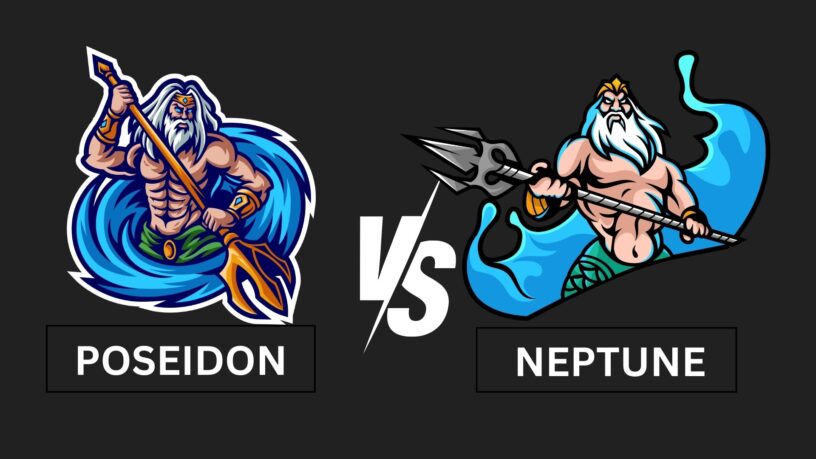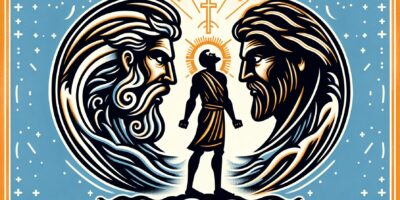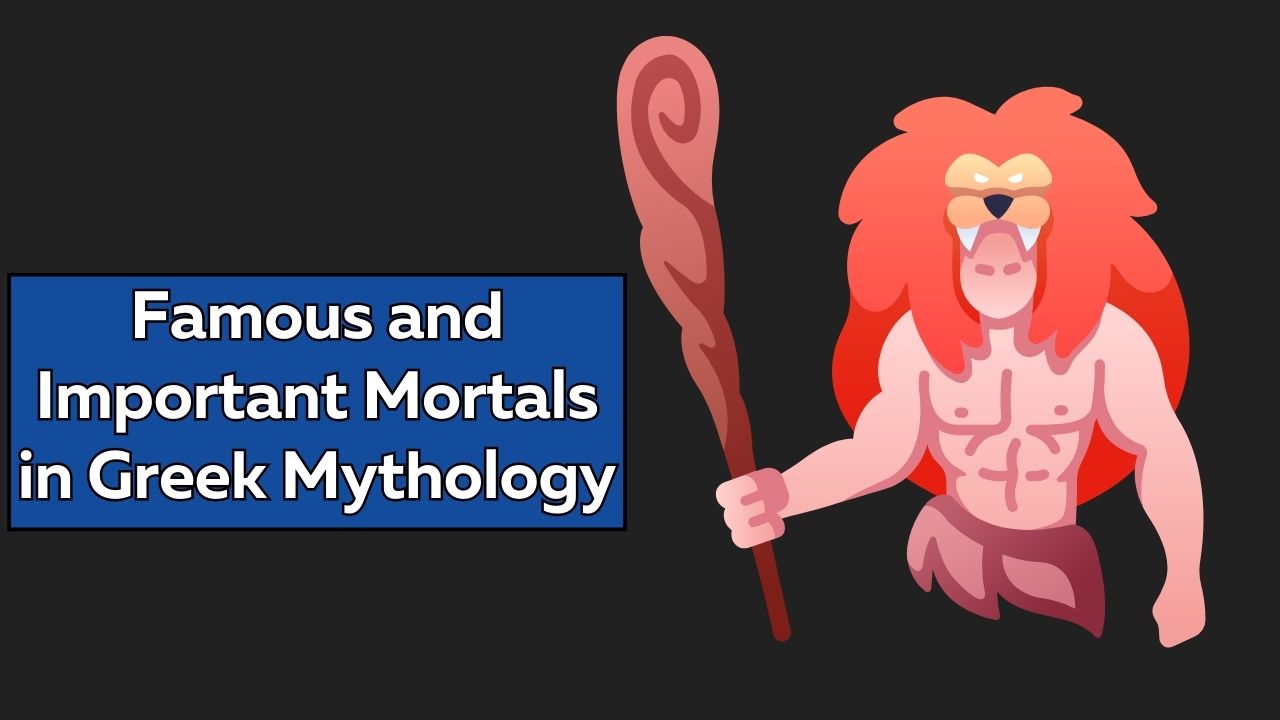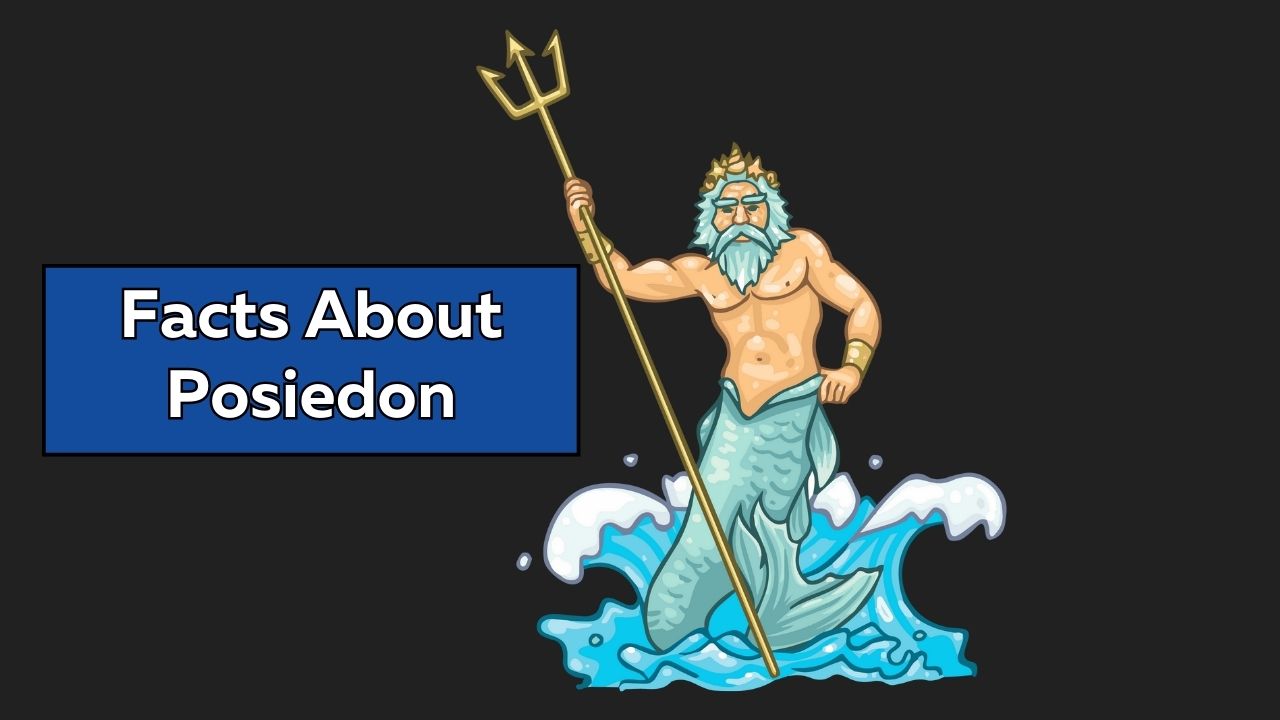Beneath the vast expanse of the oceans lies a realm of mystique and grandeur, ruled by two formidable deities – Poseidon and Neptune. These divine beings, each with their own mythological narratives, have intrigued and inspired generations. In this comparative journey, we dive deep to uncover the 15 key differences between Poseidon and Neptune, the lords of the sea.
Difference 1: Greek and Roman Origins
Poseidon: The Greek Sea God
Poseidon, a prominent figure in Greek mythology, is revered as the god of the sea, known for his tumultuous and unpredictable nature. He’s part of the Olympian pantheon, led by Zeus.
Neptune: The Roman Sea Deity
Neptune, the Roman counterpart of Poseidon, shares a similar dominion over the sea. In Roman mythology, he’s considered the counterpart to the Greek god, reflecting their culture’s unique interpretation.
Nuance: Poseidon belongs to Greek mythology, while Neptune is a Roman adaptation of the sea deity.
Difference 2: Names and Titles
Poseidon: Lord of the Waters
Poseidon’s name reflects his Greek heritage, meaning “husband of the earth.” He’s commonly referred to as the “Earth-Shaker” due to his association with earthquakes.
Neptune: God of the Sea
Neptune’s name stems from the Roman “Neptunus,” signifying his dominion over the sea. He’s often simply called the “God of the Sea.”
Nuance: Poseidon’s name emphasizes his connection to the earth, while Neptune’s name is a direct reference to the sea.
Difference 3: Depictions in Art
Poseidon: Iconic Trident and Beard
In classical art, Poseidon is depicted with a majestic beard and often wields a trident, symbolizing his mastery over the seas.
Neptune: Majestic Trident and Oceanic Imagery
Neptune’s artistic representations also feature a trident, often surrounded by oceanic symbols and imagery.
Nuance: Both deities are associated with tridents, though their artistic depictions may vary.
Difference 4: Temples and Worship
Poseidon: Greek Temples
In ancient Greece, dedicated temples and shrines to Poseidon were prevalent, including the grand Temple of Poseidon at Sounion.
Neptune: Roman Festivals
Neptune was honored in Rome through festivals like the Neptunealia, but dedicated temples were less common.
Nuance: Poseidon’s worship was marked by prominent temples, while Neptune’s veneration involved festive celebrations.
Difference 5: Stories and Myths
Poseidon: Greek Legends
Poseidon features prominently in Greek myths, with stories like his rivalry with Athena for Athens and his role in the creation of horses.
Neptune: Roman Interpretations
Neptune’s influence is seen in Roman myths, where he’s associated with the formation of water sources and aquatic creatures.
Nuance: Poseidon is integral to Greek myths, while Neptune plays a key role in Roman narratives.
Difference 6: Family Relations
Poseidon: Olympian Family
In Greek mythology, Poseidon is part of the Olympian pantheon, with siblings like Zeus, Hades, Hera, and others.
Neptune: Roman Godhood
Neptune’s Roman identity doesn’t emphasize familial connections as prominently as in Greek mythology.
Nuance: Poseidon’s family ties are more emphasized in Greek mythology.
Difference 7: Influence on Language
Poseidon: Greek Terminology
The Greek language incorporates terms like “Poseidon’s kiss” for a sea wave splashing someone.
Neptune: Roman Influence
Roman culture has left linguistic imprints with words like “neptunium,” a chemical element.
Nuance: Both deities have linguistic influences, but they differ in the terms and idioms.
Difference 8: Role in Navigation
Poseidon: Nautical Guardian
In Greek mythology, Poseidon was revered as the guardian of sailors and ships, but his temperament could also stir turbulent waters.
Neptune: Sea Protector
Neptune’s role in Roman culture was similar, where he was invoked for protection during sea voyages.
Nuance: Both deities held the role of safeguarding seafarers.
Difference 9: Personality and Attributes
Poseidon: Stormy and Impetuous
Poseidon’s character is marked by unpredictability, often venting his rage through storms and sea quakes. His temperament reflects the capricious nature of the sea.
Neptune: Calmer and Tranquil
Neptune is generally perceived as calmer and less prone to the tempestuousness associated with the sea.
Nuance: Poseidon is often portrayed with a stormier disposition, while Neptune is more tranquil.
Difference 10: Influence on Culture
Poseidon: Greek Heritage
Poseidon’s influence is widespread in Greek culture, particularly in art, literature, and coastal regions.
Neptune: Roman Legacy
Neptune’s cultural impact is felt throughout the Roman Empire, leaving a mark on architecture and aquatic engineering.
Nuance: Both deities have had a significant cultural influence within their respective contexts.
Difference 11: Associations with Horses
Poseidon: The Creator of Horses
Greek mythology attributes the creation of horses to Poseidon. He’s often depicted with these majestic creatures.
Neptune: Lesser Equine Connection
While Neptune isn’t commonly linked to horse creation, horses are associated with his Roman counterpart.
Nuance: Poseidon has a direct association with horse creation in Greek mythology.
Difference 12: Iconography in Religion
Poseidon: Sacred Animals
Poseidon’s religious iconography may include animals like dolphins and fish, symbolizing his maritime dominion.
Neptune: Water Deities
Neptune’s worship included various water deities and spirits associated with aquatic elements.
Nuance: Both deities have diverse religious iconographies centered around water.
Difference 13: Naval Symbolism
Poseidon: Greek Maritime Power
In Greek history, Poseidon’s symbolism was linked to naval strength and influence, particularly in the naval city-states of Athens and Corinth.
Neptune: Roman Naval Power
Neptune’s role was recognized in the Roman navy, reflecting Rome’s maritime dominance.
Nuance: Both deities were linked to naval power in their respective cultures.
Difference 14: Cultural Adaptations
Poseidon: Literary Inspirations
Poseidon’s character has inspired various literary works, including Homer’s “Odyssey.”
Neptune: Roman Artifacts
Roman artifacts, such as sculptures and coins, often bear Neptune’s imagery, reflecting Roman artistic expression.
Nuance: Poseidon’s influence is prevalent in literature, while Neptune’s image is prominent in Roman artifacts.
Difference 15: Regional Reverence
Poseidon: Mediterranean Embrace
Poseidon was widely venerated in the Mediterranean region, particularly in Greece, where the sea held immense cultural significance.
Neptune: Roman Territories
Neptune’s worship extended to the Roman territories, including areas under the vast Roman Empire.
Nuance: Both deities were revered in their respective regional domains.
Conclusion
As we unravel the intricate tapestry of Poseidon and Neptune, it becomes evident that these sea deities, despite their shared domain, exhibit striking differences in origin, mythology, attributes, and cultural significance. Poseidon’s presence in Greek myths reflects tempestuous waters and volatile emotions, while Neptune’s Roman interpretation offers a more serene vision of the sea. Their legacies continue to endure in various forms, each resonating with unique cultural nuances and artistic interpretations.
The question of who truly reigns over the sea remains a matter of mythological interpretation and cultural affiliation, making Poseidon and Neptune two captivating figures in the pantheon of the gods.







Leave a Reply